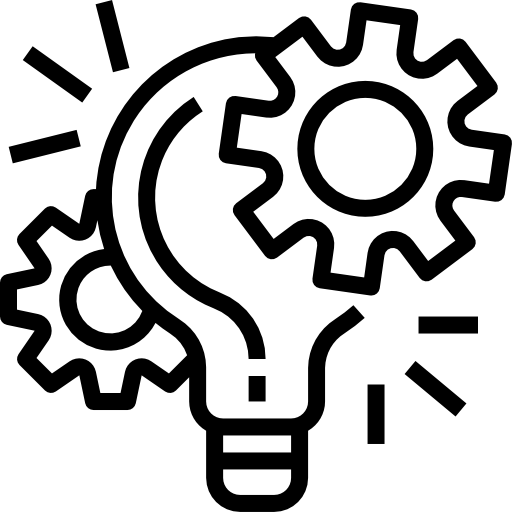Last decade has witnessed astounding advancement in technology to collect, store and process data. Till 2018, we collectively had produced staggering 2.5 quintillion (1 followed by 30 zeros) bytes of data.
Yet, less than 10% of the businesses have realized the full potential of data.
And almost 100% agree on the need to become a more data empowered organization. The reason for this gap is what we call “Technology blindness”. While focusing on the technology, businesses often forget that technology is merely a tool to support business operations. And that there is also a need to evolve processes. And finally, that the technology and process should engage and empower human resource and not become a burden for them. This is where LaNubia Data Science team can help you.
Our primary step is understanding the problem. And that includes understanding the current maturity level of the organization. Our maturity model acts as mirror to help your organization to analyze current maturity level of the different layers (People, Process, Technology and Data) and identify areas that may cause the initiative to fail.
We identify the possible pitfalls while analysing the problem.
We always start small. We start with series of workshops to break down the problem in smallest possible units. Then identify the most painful issue and build a MVP at the lowest possible cost. By the time we start on adding new feature, you have already started reaping benefit from the MVP.
Big failures are impossible in the process we adopt.
Minimum Viable product

You can already start drinking
Add
features

Keep on adding features in small steps
Add
features

Data Science uses a series of steps to apply its techniques and strategies from consulting to deployment. Below our approach for a data science project is described.

Problem formulation

Exploration

Modeling
Deployment

Implementation

Communication

- Problem Formulation / Business Understanding:
Before starting to explore the data and even before building a machine learning model, the problem that need to be solved and its business impact should be well defined. This can be done through continuous communication with problem owners / clients. A team of data scientist with curiosity and domain expertise help to understand and frame the problem.
- Data Analysis, Exploration and Visualization:
Once the problem is clearly stated, the next step is start exploring the data. In this step, the availability of data and technical feasibility of the project should be checked. If the data is not available, it is possible to find a way to collect the data that is needed for the project. If the data is already available, assessing the quality of data, basic exploration, and visualization can be done. Experts in LaNubia data science team with skill of hypothesis, web scraping, data cleaning, querying data bases, and visualization help in this step.
3. Modelling: In this step, a machine learning model is developed to help predict/forecast the future or to uncover unseen patterns using historical data.
4. Communicating the result: In this step, depending on the above steps questions such as what we learn, do the results make sense, and can we tell story out of it can be answered. This can be done through presentation, visuals, or writing a business report for the clients.
5. Implementation, Evaluation, and Adjustments: Once the result is communicated and accepted a possible feedback from customers, the next steps is implementing, evaluating, and adjusting results for possible improvement can be done.
6. Deployment: The final step of our approach is deployment of our solution for the prospecting client
Every company has different needs. Some of you may want us to just solve your problem and deliver results, whereas others may be interested in learning to do it yourself. And others may be interested in working together to solve a problem. No matter what your needs are, we have a methodology.
Projects: This focuses on working on short and long-term projects. The projects range from simple data maturity scan to developing a machine learning model for predictive analytics and deployment. LaNubia can help on building data infrastructure, extracting value of historical data, building interactive dashboards, and developing a predictive algorithm to solve complex industry problems.
Workshops: At LaNubia, we deliver workshops in different topics. For example, workshops in on building data strategy, data governance, on building a data driven culture, data maturity assessment, brainstorming and interviewing on selected topics, and so on. Organizations of any size can benefit from our workshop services.
Coaching and training: Our experts from different fields can give guidance and training for any possible data challenges and hackathons.







